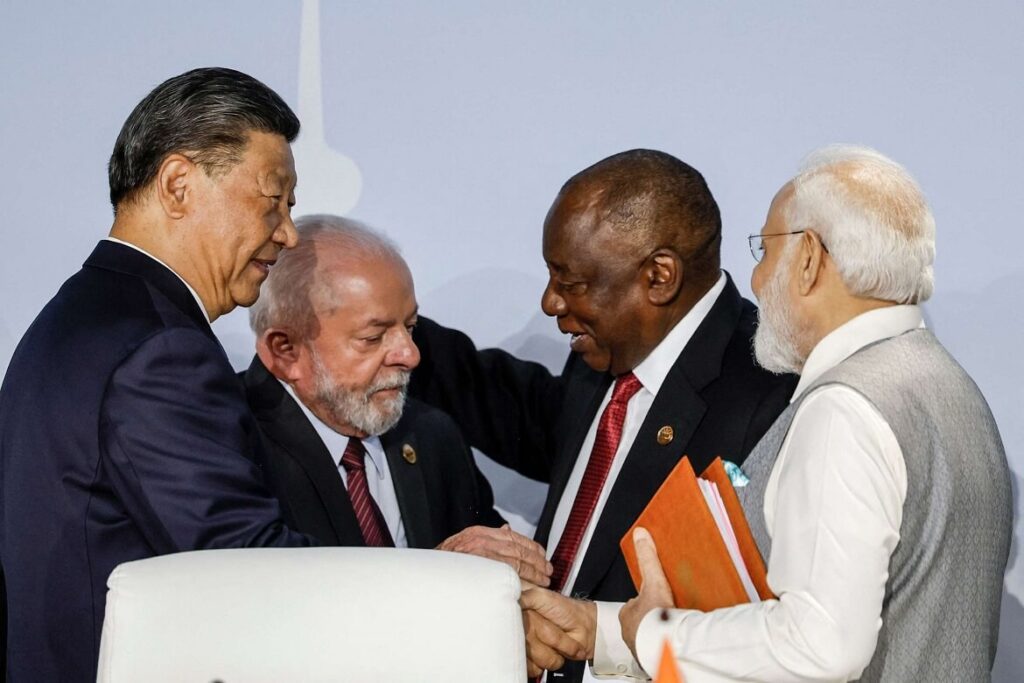The expansion of the BRICS is in line with the growth trend of emerging markets and developing countries and reflects their determination to unite and strengthen.

Earlier this year, Saudi Arabia, Egypt, the United Arab Emirates, Iran and Ethiopia joined the BRICS, so the number of its member states increased from 5 to 10.
This increase in BRICS membership not only further expands the representativeness and influence of its cooperation mechanism, but also contributes to enhancing the voice of emerging and developing countries in the international arena, giving new impetus to strengthening global governance.
The current international situation is complex and serious, the recovery of the world economy is full of uncertainties, and all countries need to work together to meet the challenges.
All BRICS members are countries with significant influence in their respective regions, they play an important role in promoting regional and international economic and trade cooperation, and thus they represent a driving force that cannot be ignored in global economic recovery.
The international community, and particularly developing countries, expect the BRICS countries to strengthen mutually beneficial and win-win cooperation, especially in the field of scientific and technological innovation.
Since the establishment of the BRICS Cooperation Mechanism, the BRICS countries have always actively supported the concepts of multilateralism and peaceful cooperation in international affairs and emphasized the resolution of international disputes through dialogue, coordination and cooperation on an equal basis.
In an international environment characterized by a Cold War mentality and unilateralism, the BRICS countries have always upheld the purposes and principles of the United Nations Charter, committing themselves to solving major international and regional problems, and promoting peace and development.
BRICS countries have consistently strengthened partnership building and pursued effective cooperation in areas such as food security, green economy and technological innovation. Countries with emerging markets and developing countries have contributed up to 80 percent of global economic growth over the past 20 years, but some less developed countries are now facing development difficulties and urgently need more international cooperation. So, the expansion of BRICS may further deepen openness and inclusion, facilitating also the implementation of the United Nations 2030 Agenda for Sustainable Development, by promoting sustainable development and prosperity for international community.
As a major country with global influence, China has made an important contribution to the development of the BRICS cooperation mechanism. In 2017, as the rotating chair of the BRICS, China first promoted the expansion of the BRICS partnership’s reach around the world through the “BRICS+” model, which received active support and enthusiastic response on a global scale.
Although BRICS countries have different cultural traditions and stages of development, they insist on finding common courses of action that, while preserving differences, can jointly promote peace, development, cooperation and mutually beneficial outcomes.
Europe is also paying more and more attention to the growing global influence of the BRICS cooperation mechanism, and more and more Europeans realize that deepening cooperation with the BRICS countries will bring more opportunities for economic growth.
Looking forward, we expect BRICS countries to play a more important role in the international arena and contribute more to promoting the creation of a more just and reasonable international order.
Giancarlo Elia Valori – President of the International World Group and Global Strategic Business, consultant to the Chinese HNA Group and honorary president of Huawei Italy. He is a honorary academician of the Academy of France, and professor at renowned universities, such as Yeshiva University in New York, Hebrew University in Jerusalem, and Peking University in China.
An article on BRICS by Giancarlo Elia Valori was also published in The People’s Daily (the official newspaper of the Central Committee of the Chinese Communist Party -CCP).







